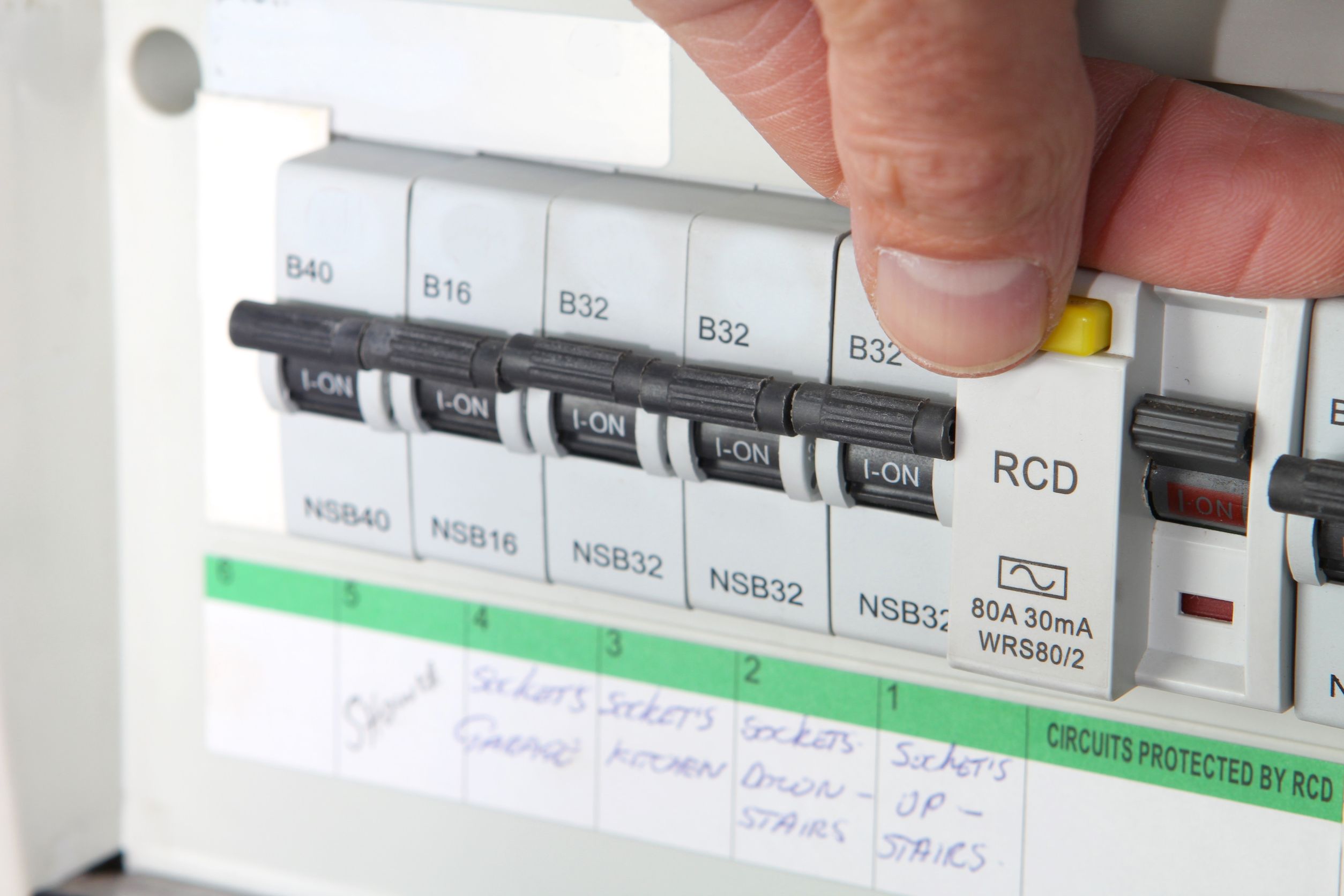
Although letting a property is considered one of the safest investments you can make, how can you be sure you are doing everything you can to maximise your return?
Here is a list of 10 things you can do to help maximise the yield you receive from your rental property.
Maintain Kitchens And Bathrooms
Tenants will stay for longer and your property will let much faster if you correctly maintain kitchens and bathrooms, you don't have to install a new kitchen for every tenancy but if your kitchen or bathroom(s) are more than 10 years old you may want to consider having some improvement works carried out such as replacing cupboard doors or worktops. Make sure any dripping taps are fixed, under cupboard lightbulbs are all working and appliances are sparkling clean before you start marketing the property. Good tenants hold these things in very high regard.
Ensure You Are Legally Compliant
Many landlords have heard horror stories about being caught on on missed legal obligations, and some landlords just assume they are legally compliant becuase they have a gas safety certificate and have put the tenants deposit into a recognised scheme. This gives us horrendous anxiety as there is so much more to it and there will be more to come as legislation continues to evolve!
Depending on your own circumstances and the type of tenancy you have, your legal obligations can vary drastically and fines for non compliance can range from hundreds to thousands of pounds, and some even carry prison sentences. If your property is already let and you would like to know if you are legally compliant, we offer a free tenancy health check to landlords in the KT postcode area, just email lettings@newtonhuxley.co.uk with your name and the address of the property and we will guide you through our checklist.
Market Competitively
Many landlords will know the pain of having an empty property, and this can quickly turn your year from a profitable one to a loss. For example a property with a typical rental value of £3000pcm will lose £692 per week if left without a tenant, and that's not including council tax, gas, electric, water rates and any service charges (if you own a leasehold property). If for example you previously let your property for £3000pcm in a more buoyant market and your tenant is leaving during a more competitive season or less buoyant market, you are better off discounting your rent by £100pcm to secure a tenant quickly, and avoid having the property empty, leaving you with lost income and footing the bill of running costs for an empty property.
Presentation & Representation
When you do need to find tenants, how will you market your property? Tenants are more likely to enquire about a property that clearly lists key benefits, has good photography and most importantly, a floor plan. Taking a few quick shots, adding a brief description and an asking rent will just about get the job done most of the time, but is that the right attitued to have towards such a valuable asset? Wouldn't you rather attract a tenant who appreciates good presentation and communication? Reliable tenants mean less stress and less risk, a good letting agent will sense an ideal match, and ensure they secure the best tenants for their clients property.
Review Your Mortgage
If you are a landlord with a buy to let mortgage you may want to look at available rates if you are approaching the end of a fixed term. In some instances you could save hundreds of pounds per month just by switching lender. This can be done with a quick search on one of the various comparison sites, but if you want to be extremely thorough, we can put you in touch with our own financial advisors who would be happy to search the market for you as they often have rates available to them that are not available on the open market. Just email len@newtonhuxley.co.uk if you would like to discuss this in greater detail.
Consider Room Letting
Do you have a property that always seems to attract professional sharers? You may be able to get a better return by letting each room rather than under one tenancy. In most cases this can increase monthly return by 20%-30%, but it does come with its own set of legal requirements and associated risks, however when managed correctly it can boost income signficantly which will not only give you better cash flow each month, but can give you options to borrow against your increased rental income to expand your portfolio. Contact our lettings team at lettings@newtonhuxley.co.uk or call Len Taylor on 01372 631 622 for more information.
Consider Allowing Pets
If you are letting a house that attracts family tenants and you are looking for a long term let, it may be worth allowing pets into your property if you are not already doing so. It is exceptionally rare that they cause problems, and its worth making allowances in return for a long tenancy with a reliable and usually hassle free tenant. As long as your tenancy agreement reflects the additional responsibilities to the tenant and their furry friend.
Tenancy Renewal
Where market trends are on the rise, request an increase in monthly rent to keep in line with market values. A small incrase of just £25 per month equates to £300 per year which will cover most if not all of your maintenance costs for any repairs at the property over a 12 month period. If the market value reflects this there is no reason why you should miss out! If you would like to get an idea on the current rental value of your property quickly, you can use this free instant valution tool here.
Give Your Property Kerb Appeal
This really only applies to those letting houses as opposed to apartments. Many landlords forget that tenants are buying a product, and they can make their decision before they even enter the property. Keep your windows clean, driveways free of weeds, brickwork, gates and paving all in good shape to make a good first impression that will go a long way to helping your property stand out against the competition, helping you to secure a better tenant and command a market leading monthly rent.
Take Good Care Of Good Tenants
It isnt pure luck that some landlords enjoy long term tenancies with minimal fuss and some seem to have to replace tenants every year with non stop maintenance issues. Responding to maintenance requests quickly are not only part of your obligations as a landlord, but it keeps tenants happy, which will likely mean they stay in your property for longer, and are more likely to agree to rent increases. Most long term renters have had a bad experience with a badly maintained property, they will see the value in being looked after and will want to stay with you as much as you want to keep them.
We understand that some landlords do not have the time or experience to correctly maintain proeprties and their obligations, which is why we offer a full tenancy management package so you can forget about the day to day running of your investment and get on with your day to day life with peace of mind. Even if we did not palce your tenant we can take over the management of your property, if you would like to discuss this further please email lettings@newtonhuxley.co.uk or call 013720631 622 and ask to speak to our Managing Director, Len Taylor.
There are always many schools of thought when it comes to letting, and it really depends on what type of tenant you want to attract. We hope that you have found the above useful and if you would like to discuss the local lettings market or recent changes in lettings legislation that may affect you or your investment, please contact our lettings team on 01372 631 622 or email lettings@newtonhuxley.co.uk.
As always, if you have a property to let and would like us to visit your property for a market appraisal, you can book your appointment here.
MAKE SURE YOU ARE GETTING MARKET RENT WITH OUR INSTANT VALUATION TOOL.

Whilst it has always been the responsibility of the landlord to ensure their properties are safe for tenants before they move in, the exact responsibilities for landlords regarding electrical safety have been somewhat vague due to no specific requirement for an EICR, unlike the very clear requirement for a Gas Safety Certificate (CP12) to certify the safety of the gas supply, and installation of gas appliances in a residential property.
We always make a point of making a visual inspection of the consumer unit at the point of bringing a property to market, and will make the landlord aware of any potential defects or safety concerns to avoid any potential problems. Having said that, it is always best to consult a qualified electrical engineer unless you already have an EICR in place or have recently replaced your consumer unit.
There are currently no details available as to when the new regulations are in place, but landlords are still very much responsible for the safety of their tenants and their properties.
Here are a list of things that you can do to check the electrical safety of your property. Please note that this is not a comprehensive check list and should only be used to help identify any potential safety issues. If you have any concerns about the safety of your property you should contact a qualified electrical engineer to attend your property as soon as possible:
- Ensure no flammable or combustible materials are being stored on or around the fusebox. As most fuseboxes are located in a cupboard, usually under stairs, and can often become quite cluttered, things like old newspapers, spare paint, coats, and cleaning products should be kept well away and stored elsewhere if possible.
- Test your consumer unit. All RCD’s should have a test or “T” button, press this to ensure that the trip mechanism is working correctly.
-
Check the condition of housing/covers. If the cover or housing of your consumer unit is damaged or loose, this will increase the risk of shock or a fire.
- Sockets, lights and switches are securely fixed and in good condition. If you find a cracked wall socket or light switch, have these replaced by a qualified electrician.
- Look for signs of overheating. If you can see blackening or scorch marks on any sockets or light fittings, this is a clear sign of overheating and should be addressed immediately.
- Cabling protected from excessive wear. If you have any cabling running through doorways or under flooring that receives a high amount of traffic, make sure it is correctly insulated and protected to avoid damage.
- Check current use of sockets. If adaptors are linked to other adaptors and sockets are being overloaded, this is a sure fire way to cause overheating. There is nothing wrong with you advising tenants of this safety issue, and if you are supplying appliances to your tenant make sure they are plugged in correctly and have been tested prior to occupation (PAT test).
- Product recall. Where you are supplying electrical appliances, make sure they are not subject to a product recall as they are your responsibility. You can visit electricalsafetyfirst.org.uk/recall to check the appliances in your property.
- Covers and Casings. Make sure that any casings or housing for appliances are intact and in good condition as damage or excessive wear could lead to a shock or fire risk.
- Cables and plugs. Ensure that these are in good condition and show no signs of deterioration, especially if you notice any blackening or scorch marks.
Additional Safety Checks
- Smoke alarm sounds when test button is pressed.
- Carbon monoxide alarm sounds when test button is pressed.
This interim checklist was sourced from electricalsafetyfirst.org, a UK charity dedicated to reducing deaths and injuries caused by electrical accidents.

The new regulations for smoke and carbon monoxide alarms in residential properties aims to save more than 20 lives every year which is great news! Here's what you need to know about the changes in legislation:
1. From October 1st 2015 all residential tenancies must be fitted with one smoke alarm per floor, and one carbon monoxide alarm for every solid fuel bruning appliance.
2. It is the landlords responsibility to ensure that alarms are installed, tested and in working order on the day their tenancy starts, not before or after.
3. Failure to adhere to the new legislation can result in a fine of up to £5000.00, although councils are required to provide 28 days notice to the landlord to rectify any breach before doing so.
If you have a tenancy that started after the 1st of October 2015 or are preparing your property for a let in the future, we are more than happy to offer further clarification and discuss the steps we have taken to ensure our clients and tenants are protected.
There have also been changes to the Section 21 notice legislation which may effect a landlords ability to end a tenancy, for more information please contact us on 0208 396 6717 or email lettings@newtonhuxley.co.uk, otherwise keep a look out for next feature.
If you are looking to let you property in Molesey or the surrounding areas and would like to know more about our flexible service levels, please contact Len Taylor on 0208 396 6717 or email len@newtonhuxley.co.uk.
Elevating the Elmbridge property market
Visit us in Molesey
East Molesey
Surrey
KT8 9ER
VISIT US IN ESHER
Claygate
Esher
Surrey
KT10 0PD



